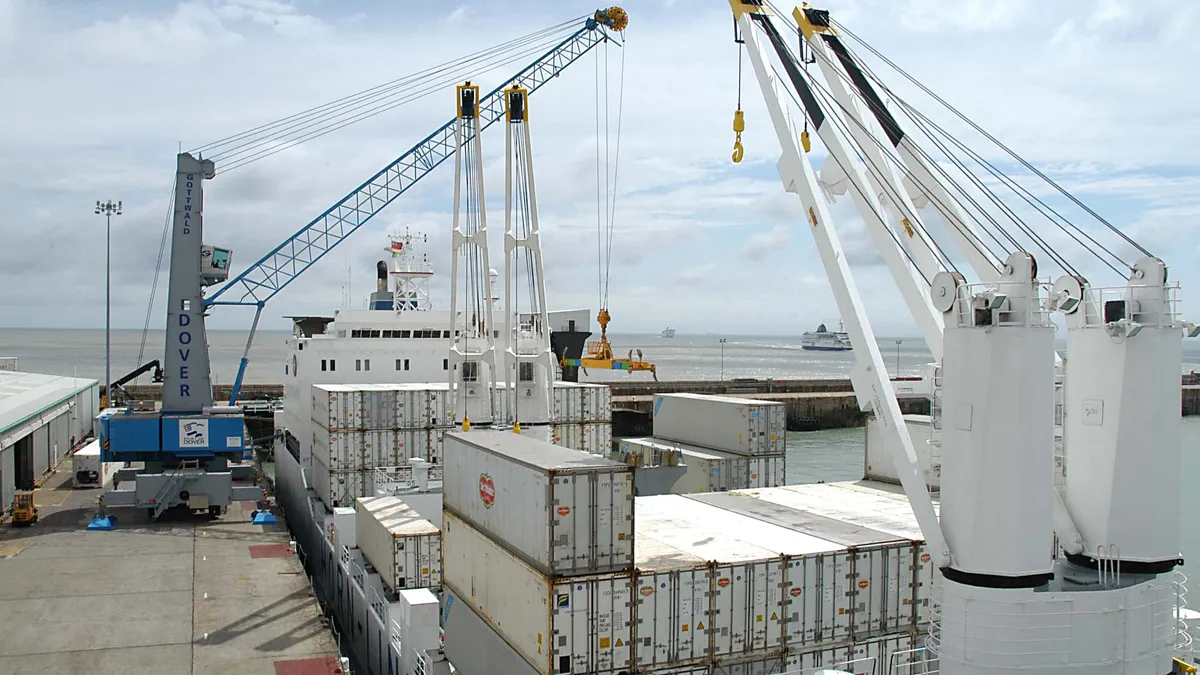Dive Brief:
- About 20% of current roll-on, roll-off (ro-ro) cargo coming through the Port of Dover could be shifted from trailers to containers and handled by other ports if post-Brexit congestion leads to unmanageable wait times, according to a newly released analysis by Drewry.
- The analysis estimates there are 5.9 million TEUs of spare capacity across multiple ports in various geographic locations in the U.K., including the Port of Bristol, the Port of Felixstowe, the Port of Liverpool and eight others.
- Carriers would be able to handle this cargo in a number of different ways, including increasing the ship size on existing routes, adding more service to existing routes or taking advantage of spare capacity, the analysis found.
Dive Insight:
The vast majority of the ro-ro traffic going in and out of the U.K. is coming from or going to the European Union. Dover is the U.K.'s busiest ro-ro port, moving 2.89 million units in 2017.
A no-deal Brexit will result in a number of customs processes being put in place that don't currently exist between the EU and U.K. Once these are in place, it could bring ro-ro traffic to a crawl. Dover and Folkestone Harbour would likely see the biggest impacts in the case of a no-deal Brexit. These ports could see "significantly reduced access across the short straits, for up to six months," according to guidance from the U.K. government issued at the end of last year.
Some companies have already begun making the shift to cargo shipments through larger container ports like Felixstowe, Southampton, London and Teesport, which get most of their traffic from China and the Americas, making them more prepared to handle the customs process, according to a report by Bloomberg.
There are currently 23 short-sea container shipping services between the U.K. and Northern Europe. There are another 16 between the U.K. and the Mediterranean.
These existing services would be able to handle 20% of ro-ro traffic that typically heads to Dover, but this assumes the carrier's current utilization is only 90%. Handling this extra traffic would increase their utilization to 97%.
This extra traffic could also be handled with the addition of six new weekly services of 1,000-TEU vessels. (Or two new services of 3,000-TEU vessels.) Northern Europe, which imports more than it exports, could use its empty containers to send this increased volume to the U.K., Drewry suggests.
As for the political side of Brexit, things still remain relatively unclear as far as next steps.
The House of Commons passed legislation this week that requires Prime Minister Theresa May to ask for another extension. It passed by a single vote, 313-312. May submitted a formal request to the EU Friday morning, asking for an extension to June 30. The current deadline is April 12.














